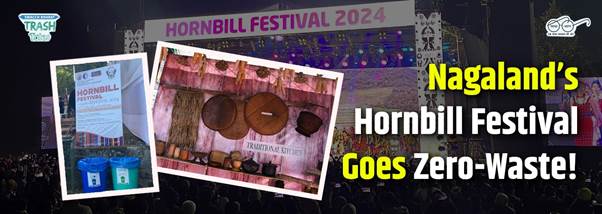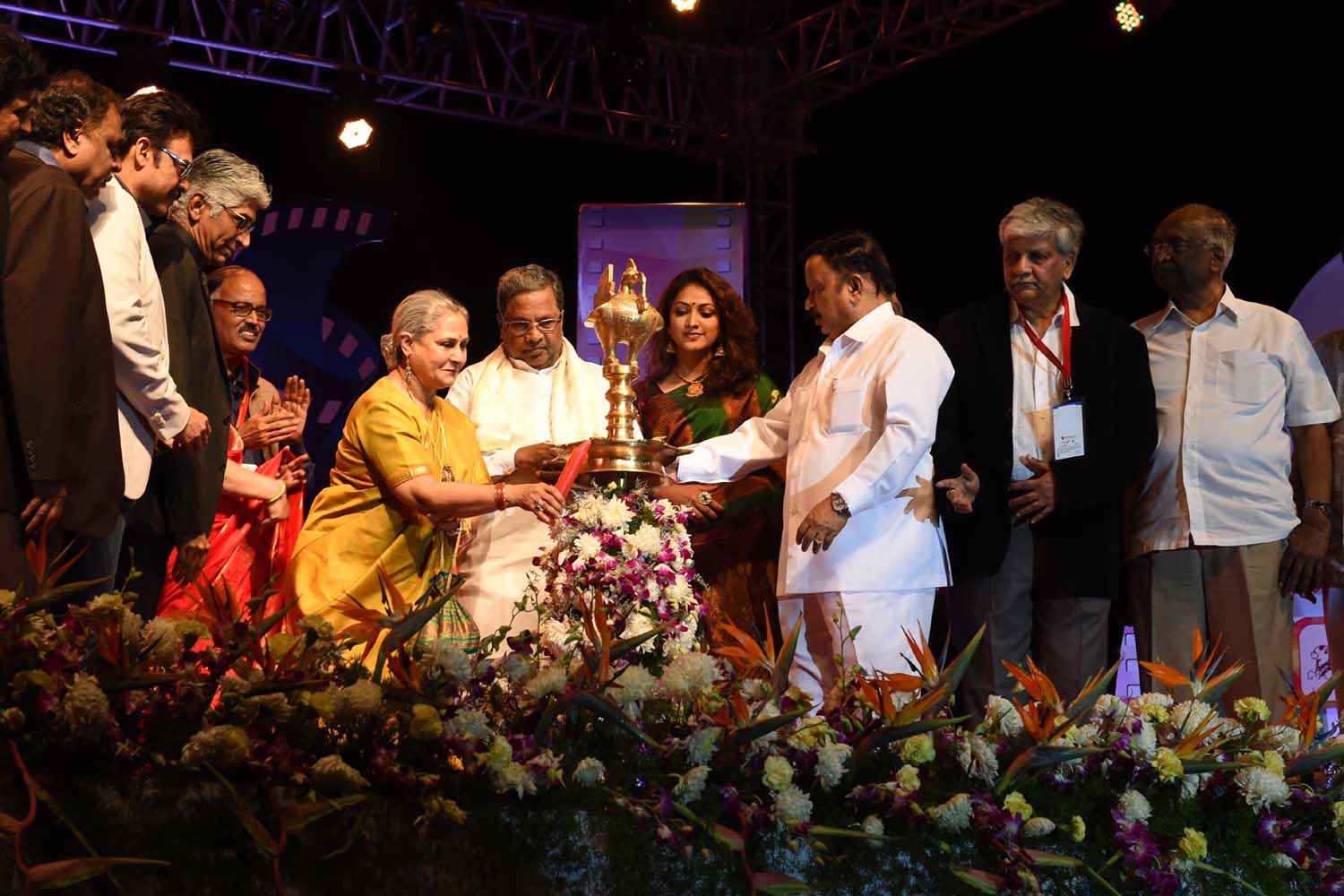The 25th Hornbill Festival, celebrated as the “Festival of Festivals,” has taken a significant step towards sustainability this year by going Zero-Waste and Single-Use Plastic (SUP)-Free. Known for showcasing Nagaland’s rich culture, music, and traditions, the festival is setting a powerful example in eco-friendly event management. With daily footfall exceeding 2 lakh visitors, this initiative marks a significant milestone in promoting environmental conservation and sustainable practices.
This year, the Hornbill Festival was inaugurated by the Nagaland CM, Neiphiu Rio. The festival aligned with global sustainability goals, aimed to become a benchmark for eco-friendly events in India. By implementing rigorous waste management practices and engaging the community, it led the way in how cultural celebrations can be harmonized with environmental conservation.
To make the Festival a Zero-Waste and Single-Use Plastic (SUP)-Free event, several impactful measures were adopted.
All single-use plastics, including straws, disposable plates, cups, and plastic bags, were banned in an effort to reduce environmental impact. To support this initiative, vendors were required to use sustainable alternatives such as bamboo straws, biodegradable cutlery, leaf-based plates, and paper bags, which are both eco-friendly and compostable. These alternatives helped minimize waste and promote a greener, cleaner environment. To ensure the success of this initiative, dedicated enforcement teams and volunteers actively monitored the venue for compliance. They engaged with vendors, providing guidance, and conducting regular checks to ensure that only approved materials were being used. Educational signage and awareness campaigns were also in place to encourage visitors to make eco-conscious choices, further reinforcing the commitment to sustainability.
A comprehensive waste management system was established, starting with waste segregation at source. Labelled bins for wet, dry, and recyclable waste were placed throughout the venue, with trained volunteers assisting visitors to ensure proper disposal and encourage behavioural change. A dedicated dry waste sorting station processes collected materials into categories such as plastics, paper, glass, and metals, with recyclables sent to authorized centres. Wet waste was processed on-site using composting units, producing compost that would benefit local agricultural fields and community gardens, creating a circular waste management model.
To reduce waste further, food stalls used reusable or compostable utensils like banana leaves and bagasse-based plates, while visitors are encouraged to bring their own utensils or purchase reusable ones at the venue. Water refilling stations have been installed across the festival site to discourage the use of plastic bottles, and visitors are incentivized to bring their own reusable bottles, with refillable options available for purchase. In addition, 42 toilets were installed at the Hornbill Festival, with 36 located in the Morung (food area) and 6 at public locations. These toilets were regularly cleaned and maintained throughout the event.
IEC campaigns played a crucial role in promoting sustainable behaviour at the festival. Informative displays were placed across the venue provided visitors with real-time guides and practical tips for adopting eco-friendly practices. Additionally, volunteers conducted on-the-spot awareness sessions to ensure attendees understand and comply with the zero-waste protocols.
The Hornbill Festival’s zero-waste approach has led to significant environmental impacts, most notably the reduction of single-use plastic (SUP) waste. Approximately 1 lakh SUP items were prevented from being used each day, totalling around 1 million fewer items over the 10-day festival, thereby significantly reducing plastic pollution in the region. Additionally, by eliminating SUP usage, the festival likely avoided over 50 metric tons of CO₂ emissions, contributing to a decrease in its carbon footprint. Local sourcing of eco-friendly materials further reduced transportation-related emissions. Furthermore, by preventing plastic waste, the festival helped mitigate the release of methane and ethylene, potent greenhouse gases, thus aligning with global climate goals and improving air quality in Nagaland. The festival also promoted a circular economy by implementing sorting stations and encouraging recycling, with recyclable materials such as paper, glass, and metals being sent to authorized centers, ensuring resource conservation and reduced energy consumption.
The success of the Hornbill Festival’s zero-waste initiative in Nagaland can serve as a model for large-scale events worldwide. By adopting similar measures at festivals, concerts, and public gatherings, we can significantly reduce environmental footprints, protect ecosystems, and combat climate change. This initiative is not only a major achievement for Nagaland but also a shining example for the global community in the fight against climate change and plastic pollution.










Leave a Reply